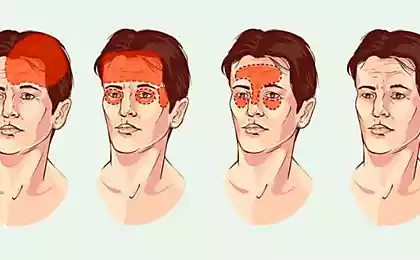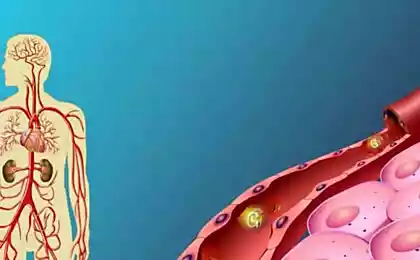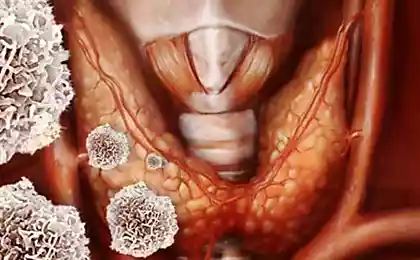519
Psychosomatic Complaints — a sign of the revitalization model of the disease
From our own experience we have seen many times that the emotional state affects the physical. When we are nervous before an important meeting, we can begin to disturb the stomach, and after a family quarrel starts splitting headache. If stressful situations are frequent and lengthy, then there is a risk of getting heart disease, high blood pressure and other illnesses.
In 20−ies of the previous century physiologist Walter cannon (Subpop, 1929) scientifically confirmed by the fact that the body's response to stress is part of a unified system of "mind-body". He noticed that many of the stressors (extreme cold, lack of oxygen, incidents), stimulating the nervous system, cause increased production of stress hormones. They cause a reaction of the nervous system, which accelerates heartbeat and perspiration, sends blood to the muscles, and releases fat from body reserves – all this happens to prepare the body to mobilize forces to fight or flight.
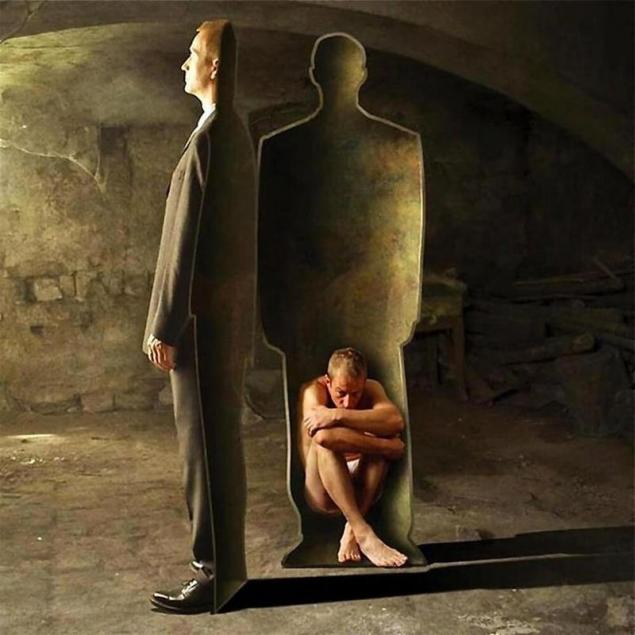
Canadian scientist Hans Selye (Selye, 1936, 1976) complements the theory of cannon and made stress one of the most important concepts in psychology and medicine.
Hans Selye showed that in a stressful situation the human body begins to adapt to the effects of stress. When a person suffers from physical or mental trauma, he first there is the alarm reaction due to sudden activation of the nervous system. Heart starts pumping, blood rushes to the muscles and in extreme cases the person may lose consciousness. All forces are mobilizing and preparing to fight. Body temperature, blood pressure remain elevated, breathing quickens, and starts the secretion of hormones. If the stressful situation is prolonged, then the next stage (weakness) the stress can drain a person. In obessilennaya state, a person is prone to diseases. Nowadays, nobody disputes the assertion that prolonged stress causes physical destruction of the body.
The level of stress depends on how we relate to the events in our lives, because all events go through the so-called psychological filters. Stress is caused not by the events themselves, and the result of their assessment of us.Thus, there is a group of diseases that are generated by the system of human values psychosomatic diseases.
The culprit of these diseases is how stress is experienced. In people with reactive nervous system chronic stress causes different changes in the body.
According to the world health organization, nearly a quarter of all diseases are due to psychological problems (Sartorius, 1994).
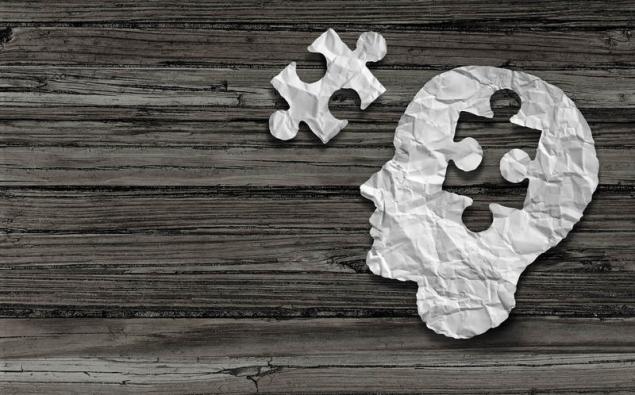
To psychosomatic diseases traditionally referred to the so-called "Chicago seven"(the holy seven) of the diseasesdescribed in the 60−ies of Franz Alexander. This:
Later to this list were added diabetes mellitus and migraine. Currently, it is believed that about 40 diseases have a psychosomatic origin.
Earlier, we noted that the basis of psychosomatic diseases is not stress and not the conflict itself, but how people respond to him. Different people getting into the same situation react differently.
But one and the same person under stress reacts, usually stereotyped, mostly the same way or, to put it differently, the same emotional/mental/behavioral patterns. These patterns or models that cause physiological response – the stress response, which at a certain duration and intensity depletes the body and creates physical illness.Today proved that people are more prone to psychosomatic diseases, behave in a certain way. It is well established that the so-called type a behavior And makes people vulnerable to cardiovascular diseases. This behavior implies the following characteristics:
We get by inheritance from our ancestors not only physiological characteristics but also inherit the basic behaviour patterns of thinking and emotional reactions. Among the inherited models very common model of the disease, which is characterized by a low tone of mood, suffering from all sorts of ailments, anxiety, feeling of injustice.
Initially, the model of disease begins as a habit to attract the attention of poor health. It can form a long-term chronic diseases of the ancestors when the family was involved in the care of one of the family members.
The first sign of the revitalization model of the disease is a feeling of depression and feeling that life is flowing somewhere where we are not, and the owner model of the disease, not aching, ready to suffer. That is, the person feels separated from life and feels the lack of vital energy.
Winner of model of the disease has a tendency to complain. Even when the problem only appears, he already wants to complain. The purpose of this behavior is to justify their own inaction, inability to confront the partner, the circumstances, the disease.
When a person complains, the relief arises from the liberation from inner restlessness. Subconscious is screaming at him to "do something" and the man complains to silence the inner voice, justifying complaints about their inaction. The complaint does not Express emotions, it drives the emotions inside.
As a result, the idle complainers fear of getting sick and the slightest indisposition such person with ease turns into disease with the help of their strong belief in family was sick good doctors there, can not be cured.
To overcome the model of the disease:
But, unfortunately, not only the person affected by the disease, but the disease affects personality. Bodily diseases impose on the person a certain mark and can cause psychological problems, which are called somatoform disorders. In this case, the treatment of the disease has to do with doctors and the psychologist helps to solve psychological problems.
As a rule, for all their physical senses, a person finds a rational explanation, sometimes with the help of doctors, sometimes on their own, using medical literature and other sources. A sick man always builds himself an internal picture of the disease is a subjective picture, which creates diseased, feelings, emotions, thoughts, behavior. Internal picture of the disease never coincides with an objective picture of the diseaseand this creates the misunderstanding in the relationship between patient and doctor. But if between patient and doctor there is no agreement in views about the disease, the patient reluctantly follows the principles and recommendations of the doctor, inhibiting thus their recovery.
Therefore, in this case the work of the psychologist is aimed at creating harmony between doctor and patient, improve self-esteem and reducing anxiety of the patient that will help him to successfully overcome the disease. The task of the psychologist to assist in the formation of a normal man's relationship to the disease with the understanding of its role in the treatment process.
In the course of psychological consultations people understand that life, despite the disease continues and he can get satisfaction from each and every day. It creates the image of a positive future and active life position, including in relation to the control of the disease.published
Author: Olga Zeitlin
P. S. And remember, only by changing their consumption — together we change the world! ©
Source: www.psycholog-consultant.ru/situation/psychosomatic/index.php
In 20−ies of the previous century physiologist Walter cannon (Subpop, 1929) scientifically confirmed by the fact that the body's response to stress is part of a unified system of "mind-body". He noticed that many of the stressors (extreme cold, lack of oxygen, incidents), stimulating the nervous system, cause increased production of stress hormones. They cause a reaction of the nervous system, which accelerates heartbeat and perspiration, sends blood to the muscles, and releases fat from body reserves – all this happens to prepare the body to mobilize forces to fight or flight.

Canadian scientist Hans Selye (Selye, 1936, 1976) complements the theory of cannon and made stress one of the most important concepts in psychology and medicine.
Hans Selye showed that in a stressful situation the human body begins to adapt to the effects of stress. When a person suffers from physical or mental trauma, he first there is the alarm reaction due to sudden activation of the nervous system. Heart starts pumping, blood rushes to the muscles and in extreme cases the person may lose consciousness. All forces are mobilizing and preparing to fight. Body temperature, blood pressure remain elevated, breathing quickens, and starts the secretion of hormones. If the stressful situation is prolonged, then the next stage (weakness) the stress can drain a person. In obessilennaya state, a person is prone to diseases. Nowadays, nobody disputes the assertion that prolonged stress causes physical destruction of the body.
The level of stress depends on how we relate to the events in our lives, because all events go through the so-called psychological filters. Stress is caused not by the events themselves, and the result of their assessment of us.Thus, there is a group of diseases that are generated by the system of human values psychosomatic diseases.
The culprit of these diseases is how stress is experienced. In people with reactive nervous system chronic stress causes different changes in the body.
- Some lingering resentments, anger or excitement may contribute to increased production of acids to digest food that is partially eaten by a protective layer of the stomach and small intestine, forming ulcers.
- Other effects of stress in the body can accumulate an excessive amount of sodium and fluids, narrowing artery walls and causing high blood pressure.
According to the world health organization, nearly a quarter of all diseases are due to psychological problems (Sartorius, 1994).

To psychosomatic diseases traditionally referred to the so-called "Chicago seven"(the holy seven) of the diseasesdescribed in the 60−ies of Franz Alexander. This:
- atopic dermatitis and psoriasis;
- ulcer of stomach and duodenum;
- ulcerative colitis;
- bronchial asthma;
- hypertension;
- thyrotoxicosis (violation of the thyroid gland),
- rheumatoid arthritis.
Later to this list were added diabetes mellitus and migraine. Currently, it is believed that about 40 diseases have a psychosomatic origin.
Earlier, we noted that the basis of psychosomatic diseases is not stress and not the conflict itself, but how people respond to him. Different people getting into the same situation react differently.
But one and the same person under stress reacts, usually stereotyped, mostly the same way or, to put it differently, the same emotional/mental/behavioral patterns. These patterns or models that cause physiological response – the stress response, which at a certain duration and intensity depletes the body and creates physical illness.Today proved that people are more prone to psychosomatic diseases, behave in a certain way. It is well established that the so-called type a behavior And makes people vulnerable to cardiovascular diseases. This behavior implies the following characteristics:
- psychomotor agitation. People walk fast and talk fast, gesticulate intensely, have rich facial expressions, highly intoned speech (the speech of such a person impossible to penetrate), can not tolerate pauses in the interaction;
- have a bright motive of achievement. Media behavior type And very ambitious, demanding towards themselves and others;
- they have multiple targets per unit of time;
- rigid, authoritarian;
- build hierarchical relationships;
- of any relationship create competition;
- aggressive towards other people.
We get by inheritance from our ancestors not only physiological characteristics but also inherit the basic behaviour patterns of thinking and emotional reactions. Among the inherited models very common model of the disease, which is characterized by a low tone of mood, suffering from all sorts of ailments, anxiety, feeling of injustice.
Initially, the model of disease begins as a habit to attract the attention of poor health. It can form a long-term chronic diseases of the ancestors when the family was involved in the care of one of the family members.
The first sign of the revitalization model of the disease is a feeling of depression and feeling that life is flowing somewhere where we are not, and the owner model of the disease, not aching, ready to suffer. That is, the person feels separated from life and feels the lack of vital energy.
Winner of model of the disease has a tendency to complain. Even when the problem only appears, he already wants to complain. The purpose of this behavior is to justify their own inaction, inability to confront the partner, the circumstances, the disease.
When a person complains, the relief arises from the liberation from inner restlessness. Subconscious is screaming at him to "do something" and the man complains to silence the inner voice, justifying complaints about their inaction. The complaint does not Express emotions, it drives the emotions inside.
As a result, the idle complainers fear of getting sick and the slightest indisposition such person with ease turns into disease with the help of their strong belief in family was sick good doctors there, can not be cured.
To overcome the model of the disease:
- the first thing to do is realize its presence, to admit that I disease wait, don't fight a disease, and instead of complaining action;
- you then need to analyze the source of its emergence, to see which of your ancestors had this model. It often happens that a person falls into the age trap – illness model aktiviziruyutsya when life ancestor had the illness;
- after realizing the necessary practical steps: you need to make affirmations (new beliefs) that will fix in the consciousness a new understanding and to take real steps to recovery.
But, unfortunately, not only the person affected by the disease, but the disease affects personality. Bodily diseases impose on the person a certain mark and can cause psychological problems, which are called somatoform disorders. In this case, the treatment of the disease has to do with doctors and the psychologist helps to solve psychological problems.
As a rule, for all their physical senses, a person finds a rational explanation, sometimes with the help of doctors, sometimes on their own, using medical literature and other sources. A sick man always builds himself an internal picture of the disease is a subjective picture, which creates diseased, feelings, emotions, thoughts, behavior. Internal picture of the disease never coincides with an objective picture of the diseaseand this creates the misunderstanding in the relationship between patient and doctor. But if between patient and doctor there is no agreement in views about the disease, the patient reluctantly follows the principles and recommendations of the doctor, inhibiting thus their recovery.
Therefore, in this case the work of the psychologist is aimed at creating harmony between doctor and patient, improve self-esteem and reducing anxiety of the patient that will help him to successfully overcome the disease. The task of the psychologist to assist in the formation of a normal man's relationship to the disease with the understanding of its role in the treatment process.
In the course of psychological consultations people understand that life, despite the disease continues and he can get satisfaction from each and every day. It creates the image of a positive future and active life position, including in relation to the control of the disease.published
Author: Olga Zeitlin
P. S. And remember, only by changing their consumption — together we change the world! ©
Source: www.psycholog-consultant.ru/situation/psychosomatic/index.php

